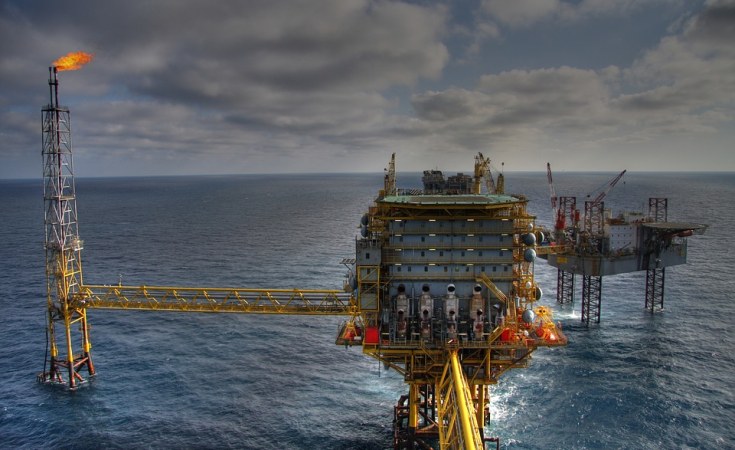Have you seen or suffered unusual temperatures, rain, drought, landslides, earthquakes or floods lately? Blame climate change.
The climate is going crazy and risking our food, water, property, health, medicine, life, happiness, beautiful scenery, shelters, money and your children's future. Climate change threatens the essentials of life and luxuries we take for granted. Climate change is about the earth getting warmer. So warm that death, diseases, hunger, water insecurity and other problems arise, multiply and intensify.
Climate change refers to the human-induced alternation of the composition of the global atmosphere beyond natural climate variability. Some call it global warming. Yet, as the UN general secretary rightly said recently, the era of global warming is over: we are now in the era of global boiling.
Climate change is primarily caused by the burning of fossil fuels (coal, oil and gas) that release polluting gases like carbon dioxide, methane and nitrous oxide into the atmosphere forming a blanket that traps heat rays from the sun and stops them from reflecting back to the sun.
This is the greenhouse effect. It was, therefore, mindboggling when on Friday September 15, 2023, Uganda police arrested four students -- Marktum Kajjubi, Alex Wasswa Lyazi, Benjamin Akiso, Abdul Twaibu Magambo -- who were peacefully protesting against a fossil project -- the East African Crude Oil Pipeline (EACOP)--as they marched to parliament to petition the speaker.
There can be no police without a stable climate. New or more fossil fuels are incompatible with a livable future. That is science. The climate we are enduring-- thanks to fossil fuels--is not a change. It is a crisis, emergency, and a catastrophe. More than global warming, it is global heating.
May appropriate language awake world leaders, businesses and individuals to the need to take critical climate action now to reduce the lethal consequences of the climate emergency now; and its more devastating future impacts.
The climate emergency means a situation in which urgent action is required to reduce or halt climate change and avoid potentially irreversible environmental damage. It is a climate emergency because the climate is changing faster than nature.
We cannot adapt to starvation, death or extreme heat. Only an accelerated emergency response can reduce loss and damage from the climate catastrophe. The climate emergency is causing death and destruction to not only people, animals and plants but also their food, medicine, homes, habitats, water sources and entire ecosystems. African countries will be hit worst but no country is safe from the climate crisis.
We saw this in parts of Kigezi, Rwanda and DRC early this year. People across the world are losing their lives and livelihoods due to more deadly and more frequent heat waves, floods, wildfires and droughts. The climate crisis is no longer a future problem.
Last year, one-third of Pakistan was immersed in floods. Wildfires are razing large areas in Europe and North America. On Tuesday September 12, 2023, in the Libyan coastal city of Derna, a climate emergency triggered torrential rains that claimed more than 6,000 people after two dams burst, destroying much of the city and carrying entire neighbourhoods into the sea.
Morocco had a similar ordeal losing more than 2,500 people. Urgent climate action is necessary since rising temperatures are fueling environmental degradation, natural disasters, weather extremes, food and water insecurity, economic disruption, conflicts and terrorism. Sea levels are rising, the Arctic is melting, coral reefs are dying, oceans are acidifying and forests are burning.
Climate action refers to efforts taken to combat climate change and its impacts. These efforts involve reducing greenhouse gas emissions (climate mitigation) and/or taking action to prepare for and adjust to both the current effects of climate change and the predicted impacts in the future (climate adaptation).
By keeping fossil fuels in the ground, investing in renewable energy, using sustainable transport, climate-smart agriculture, conserving biodiversity, wetlands and forests like the Amazon, the Congo belt; we can tackle the climate crisis.
The climate emergency is a medical emergency compromising lives and health in a variety of ways. It threatens the essentials of good health--clean air, safe drinking water, nutritious food supply and safe shelter--and can undermine decades of progress in global health.
We must limit warming to 1.50 degrees Celsius (compared to pre-industrial times) to avoid the worst of the climate catastrophe. At the current 1.10 C, it is red-hot terrible, and the world is on track for a catastrophic 3-40 Celsius by the end of the century.
There is more carbon dioxide in the atmosphere than at any time in human history; and the remaining carbon budget is tiny. To keep below 1.50 C of warming, the aspiration of the world's nations, we need to halve emissions by 2030 and reach zero by mid-century. Time is not our best ally but we must remain hopeful that we can tackle the greatest challenge of our time.
kiizaeron@gmail.com
The author is CEO, Environment Shield


